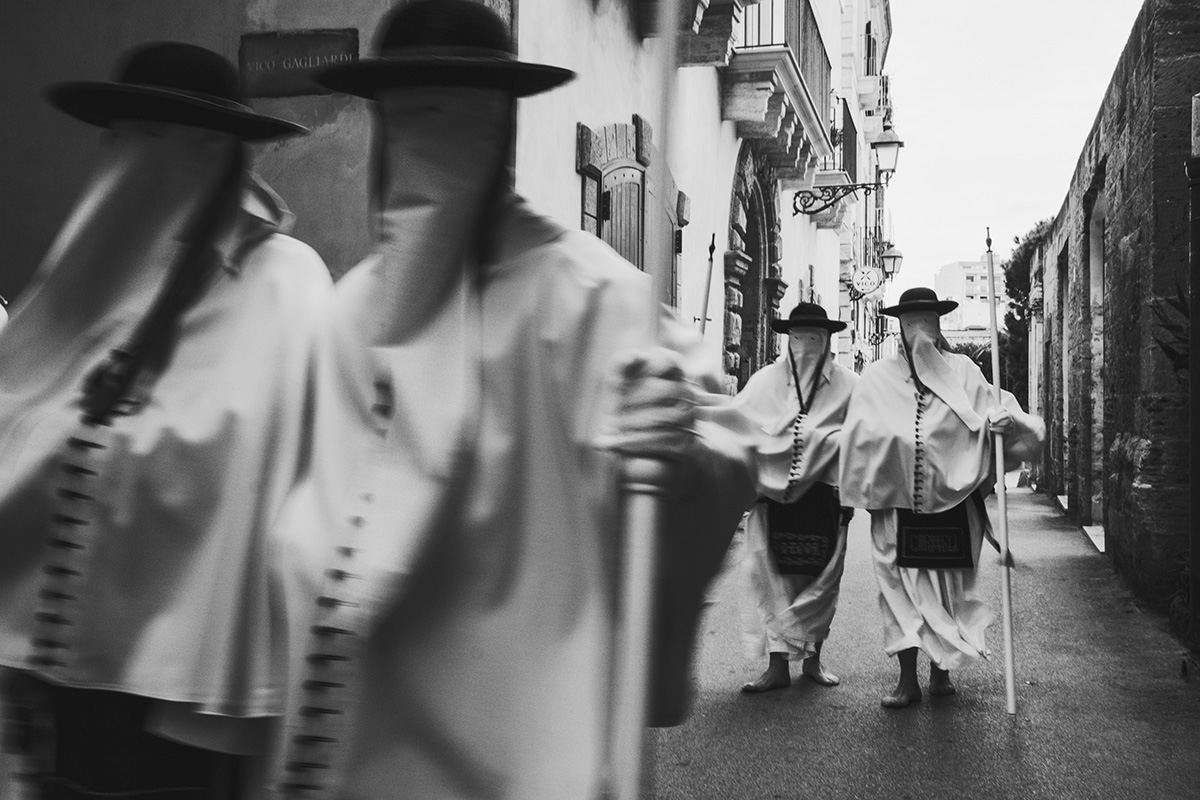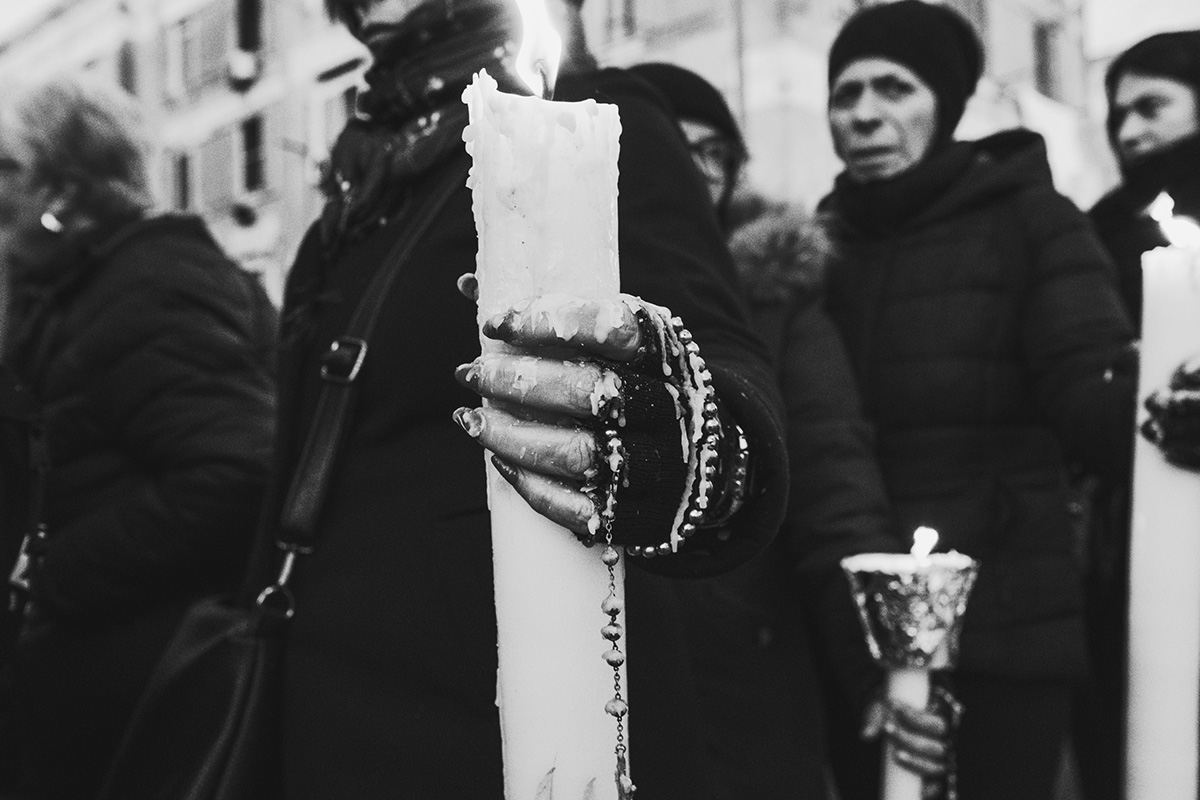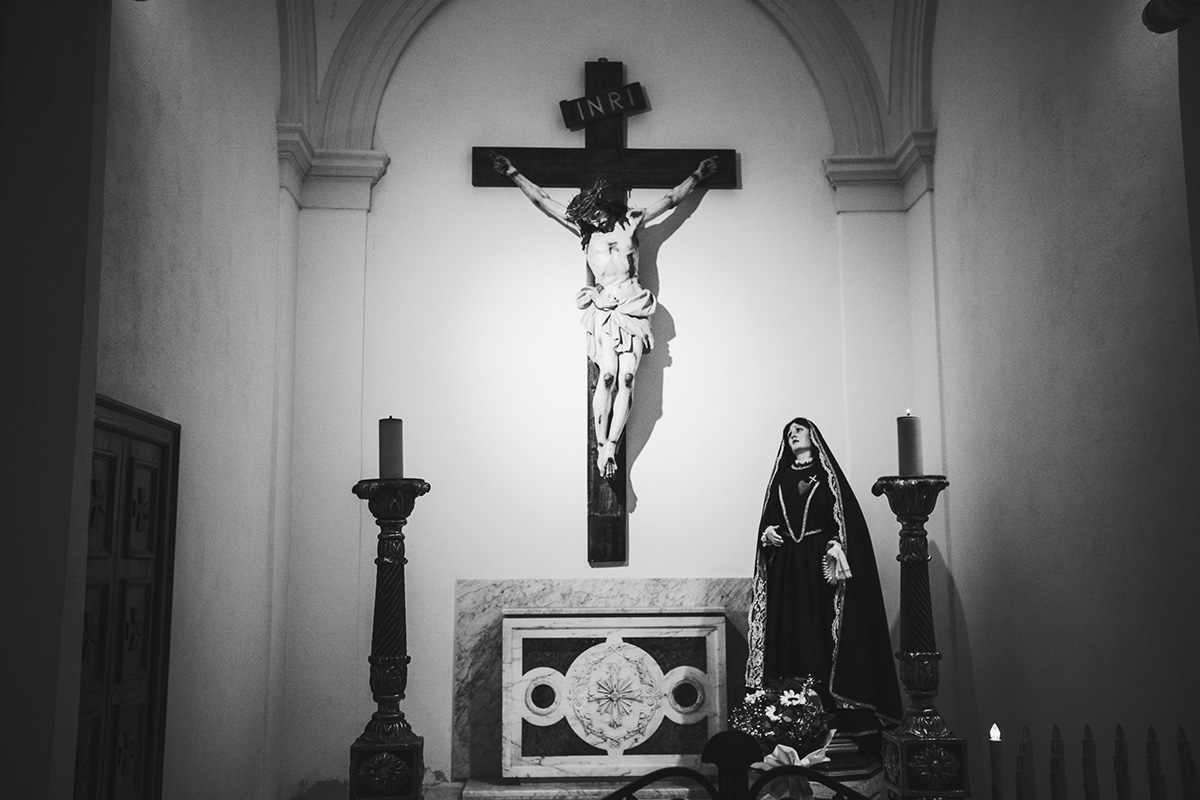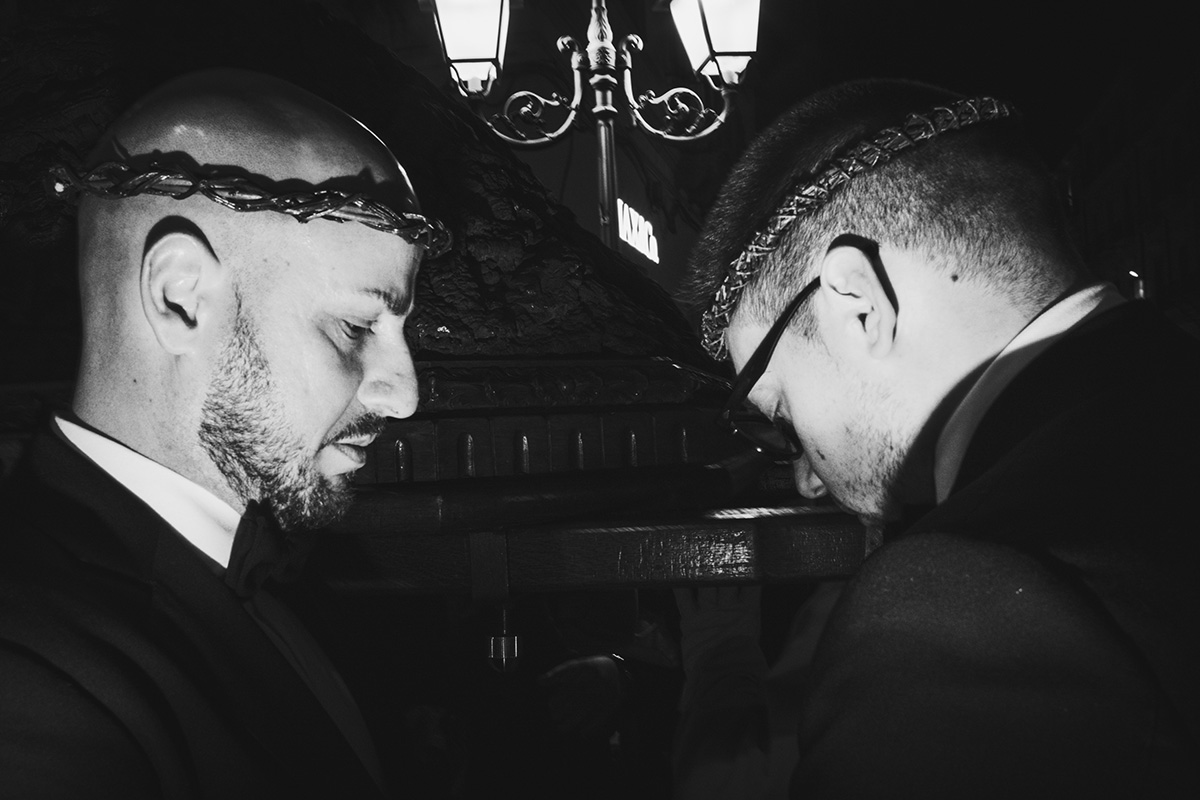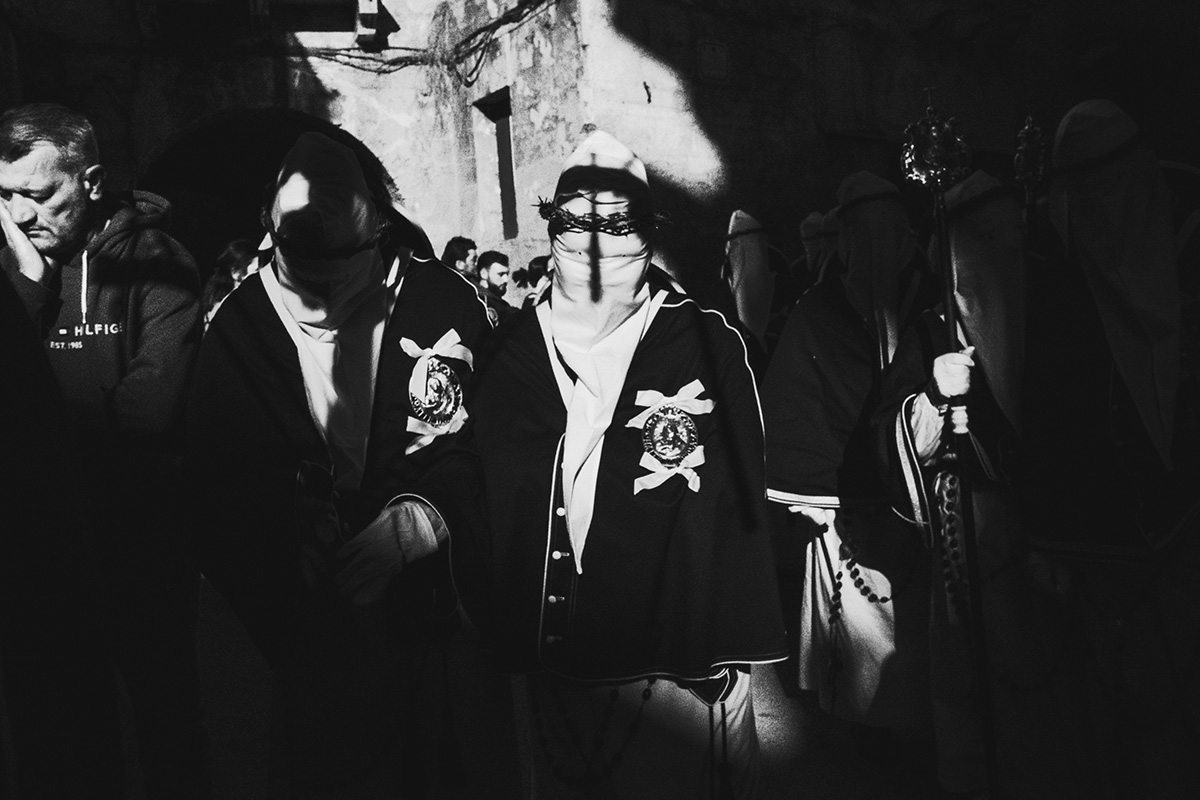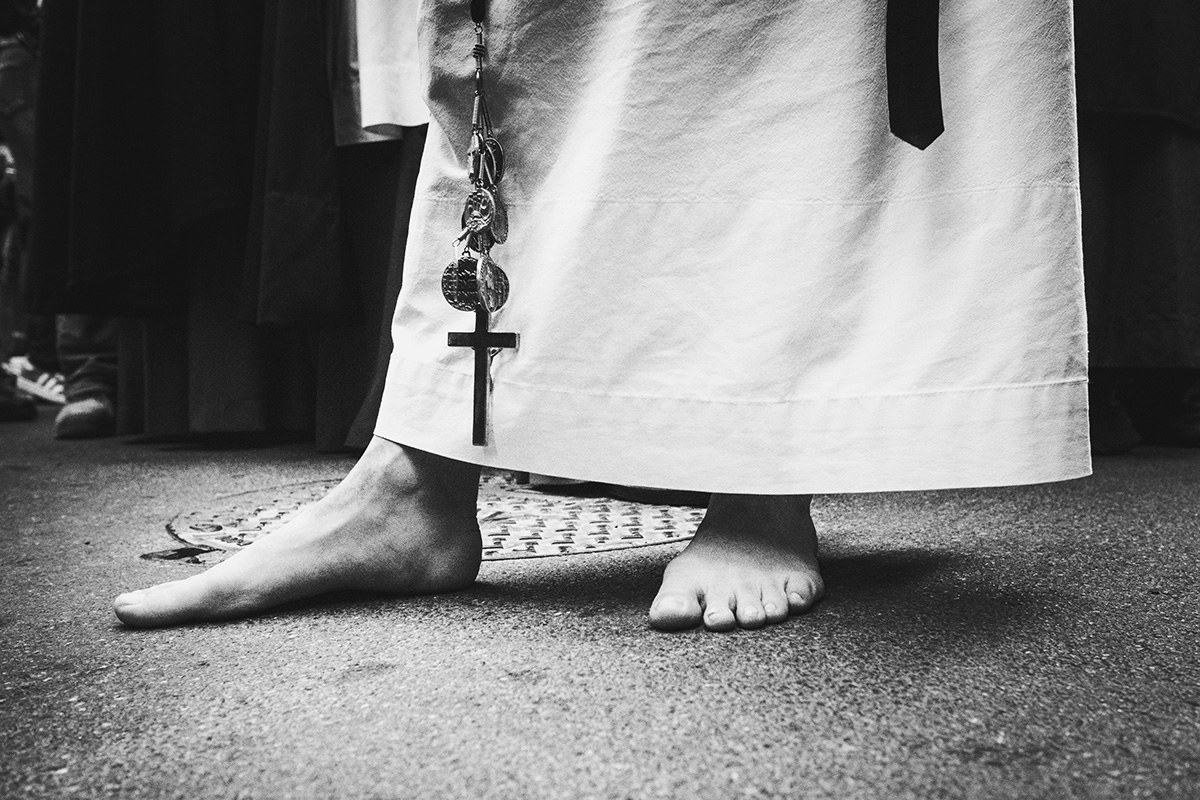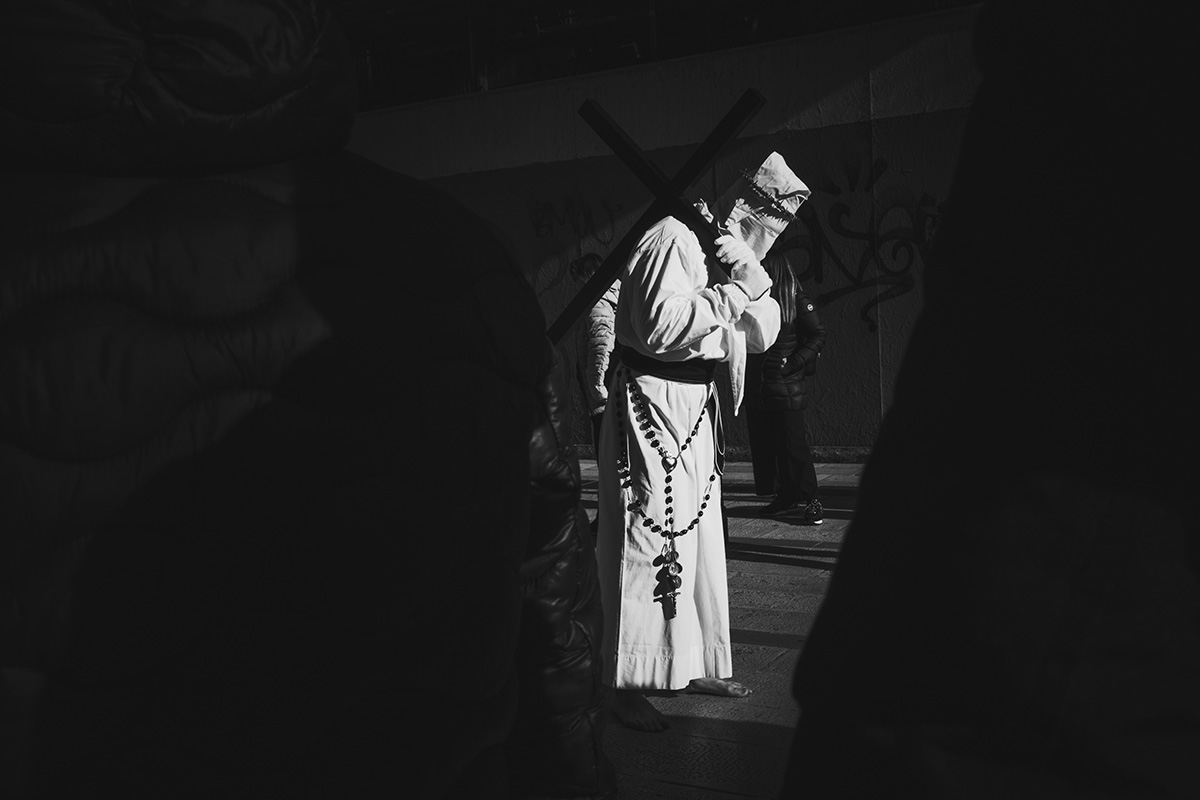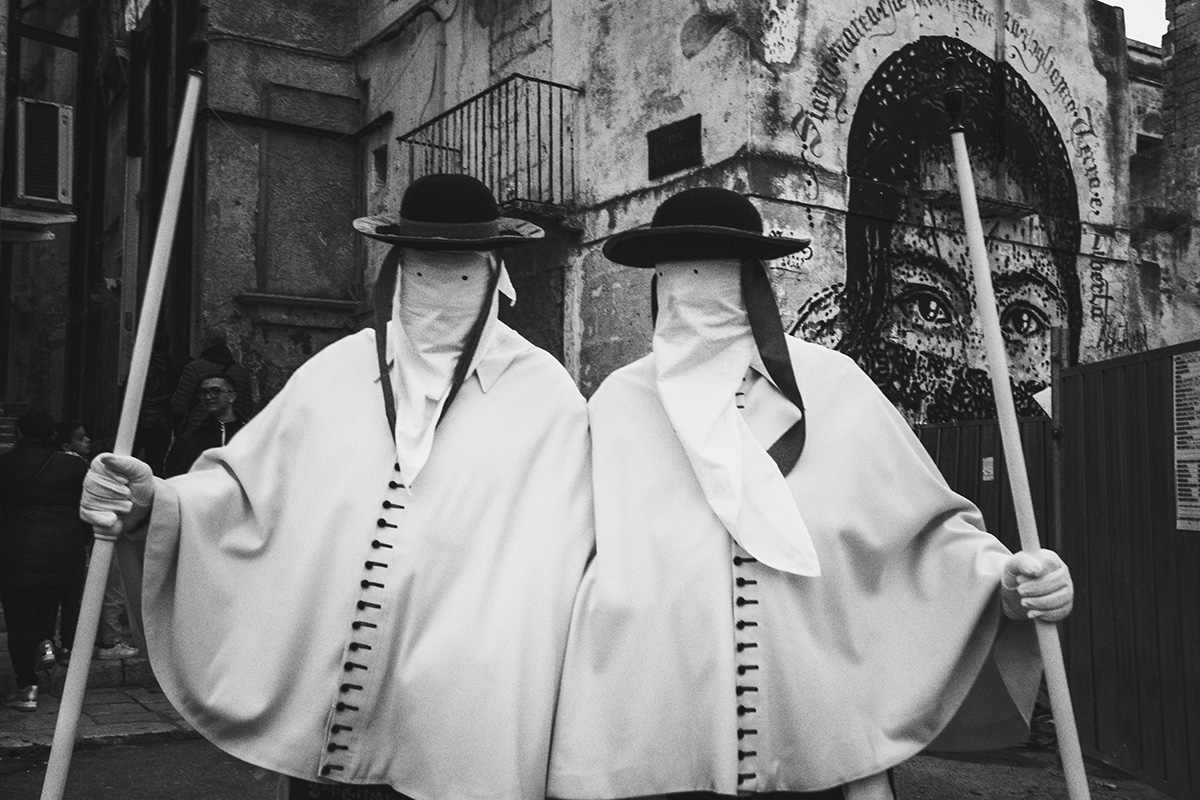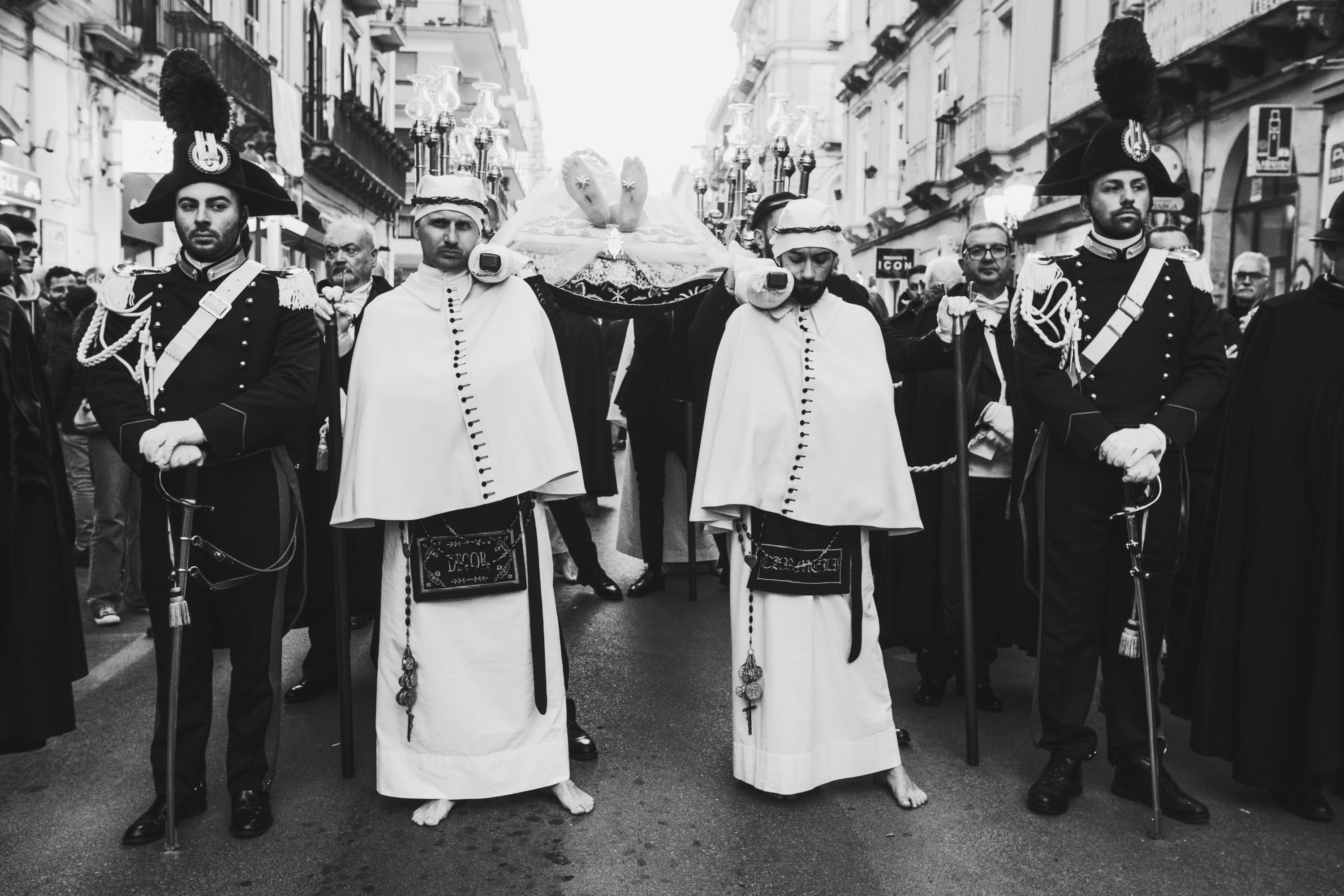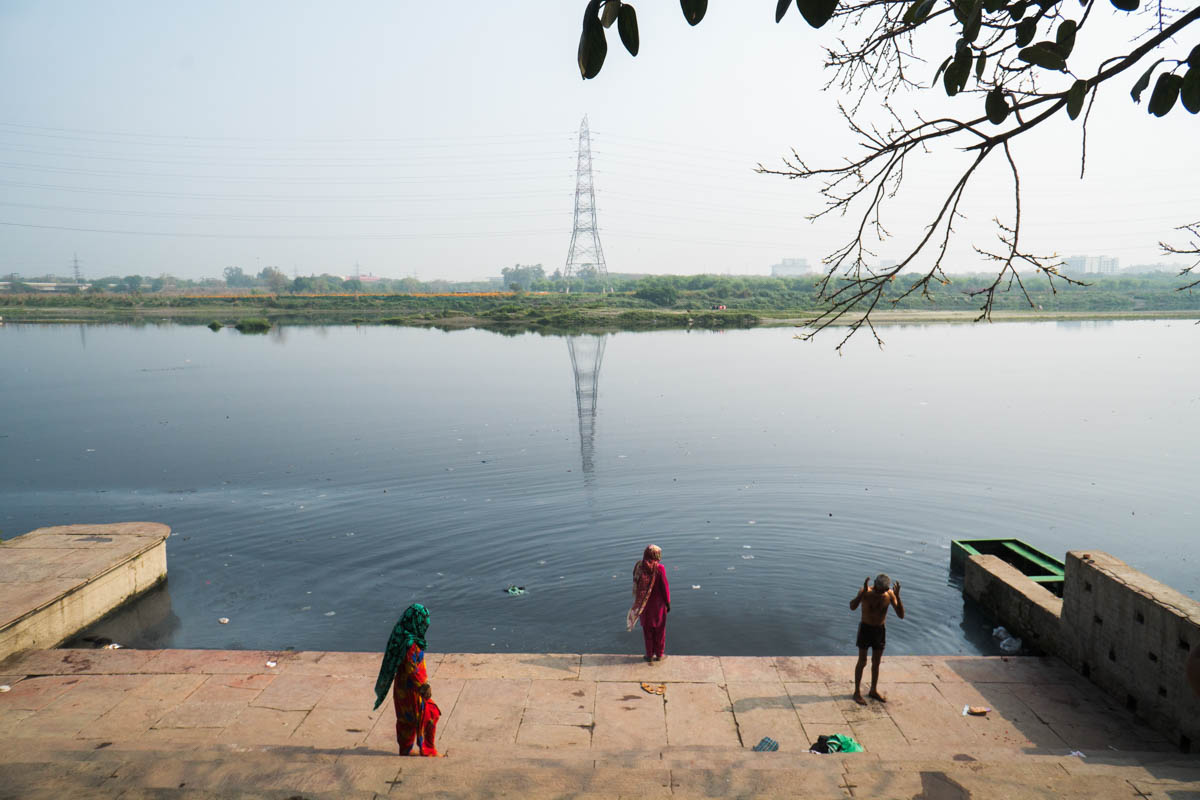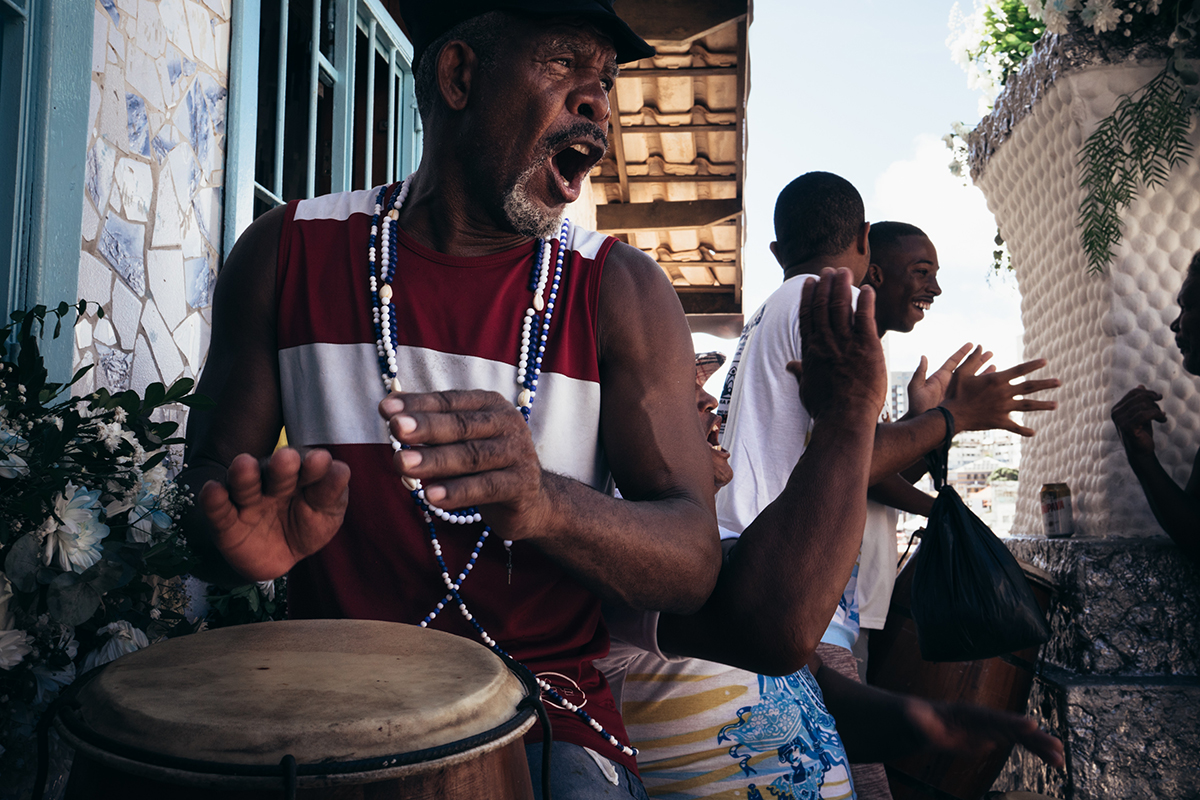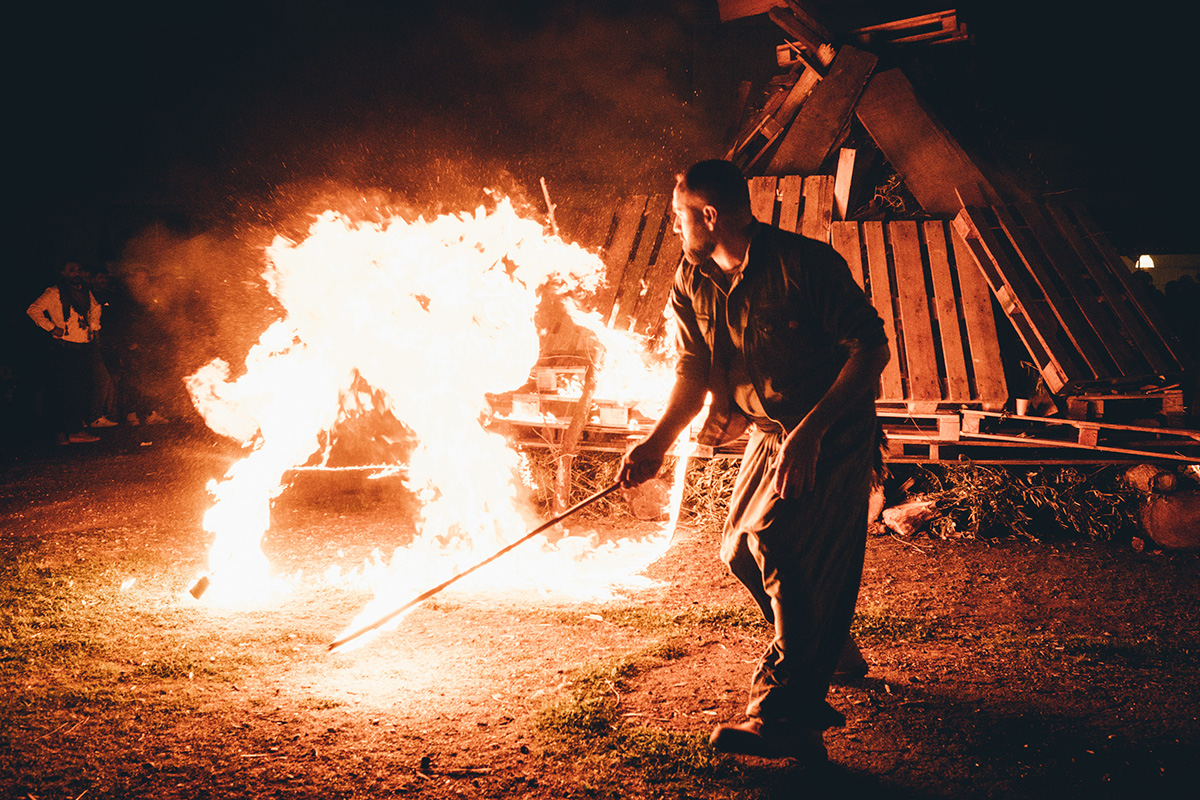Sacra fratellanza
Nel cuore della notte, le strade di Taranto si trasformano in un teatro sospeso, dove il tempo si piega al ritmo lento dei passi scalzi. Uomini incappucciati, i Perdoni, avanzano in coppia, in un silenzio che pesa più dei tamburi che in lontananza fanno sentire il loro approssimarsi. Non recitano una parte, bensì vivono un rito. Dietro quelle vesti bianche e quegli occhi invisibili si cela una devozione ruvida, popolare, che non ha bisogno di parole colte per farsi capire. È una fede che nasce dal dolore, dalle promesse sussurrate in ospedale o in lacrime davanti alla tomba di un familiare. Una fede che spesso non si eredita, si conquista.
La penitenza non è solo un simbolo, piuttosto un'offerta concreta. Un passo dopo l’altro per un lutto non superato, una malattia sconfitta o una colpa da espiare. È una marcia della memoria e della speranza, un tentativo di ridare ordine a ciò che si è spezzato. Non conta quanto si possiede o dove si è nati, il camice è uguale per tutti, e il dolore, come la redenzione, non fa distinzioni di classe.
Nel cuore di questa sacralità ancestrale pulsa qualcosa di quasi surreale: come se la città intera trattenesse il fiato, diventando sogno e incubo, palcoscenico e confessionale. È un atto collettivo che confonde realtà e mistero, in cui anche chi non crede può riconoscere il bisogno umano di ritualità, di perdono, di senso della vita.
Tredici fotografie come tredici stazioni di un cammino interiore e condiviso. Non raccontano solo la religione, ma il desiderio profondo di riscrivere la propria storia attraverso rituali, silenzi e fede o forse solo la necessità di credere in qualcosa di più grande.
In the dead of night, the streets of Taranto transform into a suspended theater, where time bends to the slow rhythm of barefoot steps. Hooded men, the Perdoni, advance in pairs, in a silence that weighs more than the drums that make their approach heard in the distance. They do not play a part, but rather live a ritual. Behind those white clothes and those invisible eyes lies a rough, popular devotion that does not need cultured words to make itself understood. It is a faith that is born from pain, from promises whispered in the hospital or in tears in front of a family member's grave. A faith that is often not inherited, it is earned.
Penance is not just a symbol, but rather a concrete offering. One step after another for a grief that has not been overcome, a disease defeated or a guilt to be atoned for. It is a march of memory and hope, an attempt to restore order to what has been broken. It doesn't matter how much you own or where you were born, the white coat is the same for everyone, and pain, like redemption, does not distinguish between classes.
In the heart of this ancestral sacredness, something almost surreal beats: as if the entire city were holding its breath, becoming dream and nightmare, stage and confessional. It is a collective act that confuses reality and mystery, in which even those who do not believe can recognize the human need for ritual, forgiveness, meaning of life.
Thirteen photographs like thirteen stations of an interior and shared journey. They do not only tell the story of religion, but of the deep desire to rewrite one's own history through rituals, silences and faith or perhaps just the need to believe in something bigger.



